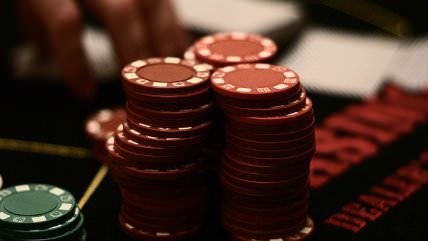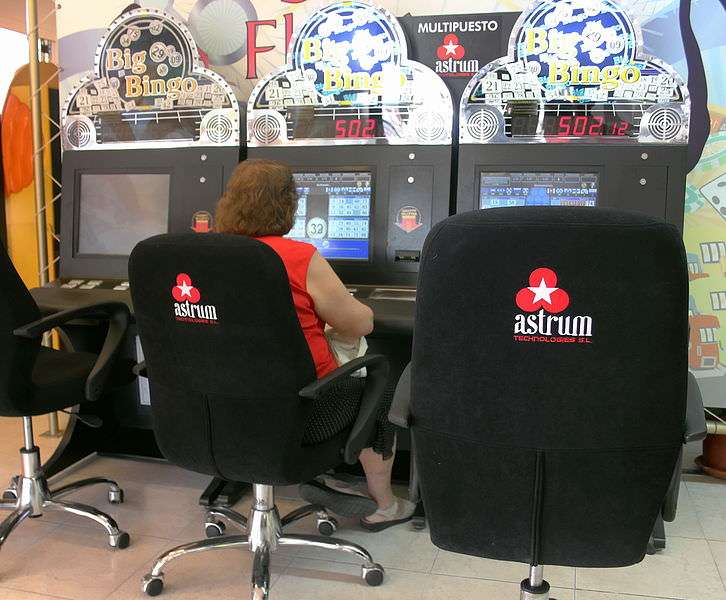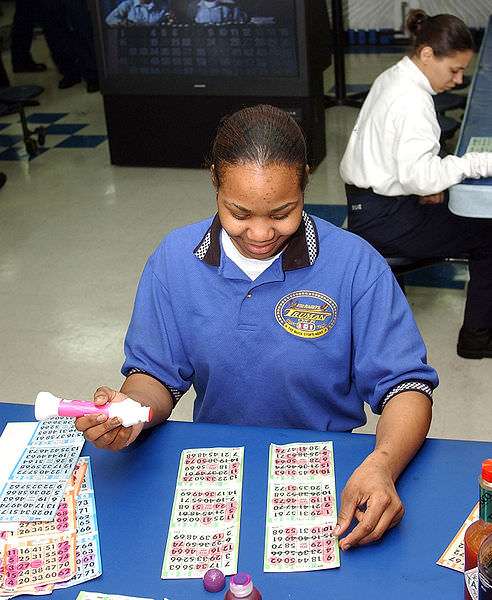Gambling and Government: Uncle Sam Takes All
It seems that government dislikes gambling unless government gets to be the house.


Did you fill out a March Madness bracket this year? In many states, if you put money in a pool, that's illegal.
The NCAA website warns, "Fans should enjoy … filling out a bracket just for the fun of it, not … the amount of money they could possibly win."
Give me a break. Americans bet more money on March Madness this year than on the Super Bowl.
Politicians can't quite make up their minds about gambling: They approve certain casinos and promote state lotteries but crack down on sports bets and some charity poker games. It seems that government dislikes gambling, unless government gets to be the house.
Increasingly, government is. After locking up bookies for "dangerous and criminal" activities, like running "numbers rackets," most states now offer much worse odds in state lotteries. Then they take money from taxpayers to advertise their scams.
Some states even run commercials that mock hard work, pushing the benefits of a long-shot jackpot. Poor people become poorer, because they buy most of the lottery tickets. Then politicians brag how money from the lottery helps the poor. It's disgusting hypocrisy.
Politicians award casino permits to politically connected businessmen who make most of their money from slot machines that offer miserable odds. But when "unapproved" websites offered Internet poker, at far better odds, the federal government charged operators with "money laundering" and shut the sites down.
Recently, three states noticed that people like Internet gambling so much that millions of dollars leave America and go to overseas websites. So New Jersey, Delaware, and Nevada begged federal officials for permission to legalize some Internet betting and got it. Now other states may do it, too.

A group called the Coalition to Stop Internet Gambling wants to prevent legalization. It warns: "Gambling will be available in every home, every bedroom, every dorm room, on every phone, tablet, and computer!" It's revealing that its ads are funded by casino magnate Sheldon Adelson. He doesn't mind you gambling, obviously. He just wants you to go to casinos, like those he happens to own.
Government, just as hypocritical, invites people to buy lottery tickets while simultaneously stamping out rival forms of gambling and warning us of the damage gambling can do. And, yes, gambling hurts some people. Some wreck their lives and gamble away their life savings. How many gamblers? That's not clear. Maybe 2 percent, say critics of gambling.
But Patrick Basham of the Cato Institute argues that gambling is often a symptom rather than a cause. "It's very hard to disentangle all the things that are going wrong in that person's life," perhaps depression and other psychological problems, said Basham. "The people who get into these problems tend to have difficulties."
I love gambling. But on my TV show, I gave Basham a hard time for arguing that gambling is "healthy." Fun, maybe, but I told him I don't think it's healthy.
"You're wrong," he answered. "It's good for our emotional health … physical health … It provides social interaction, which has all kinds of physiological benefits. Older people who gamble have less alcoholism, less depression than older people who do not gamble."
I can't vouch for the statistics. You can read his book, Gambling: A Healthy Bet, and judge for yourself.
What I do know, and hate, is that with gambling, as with so many other activities, the government tells us it knows best, and then makes matters worse by banning things. The bans drive betting into the hands of criminals. Politicians turn small problems into big ones.
I wish politicians would notice that their clumsy one-size-fits-all laws can never take into account how 300 million different Americans react to a complex experience like gambling. The way people gamble will vary, just as the way they drink or play sports varies. Most people are careful; some are reckless. But we don't respond by forbidding drinking or sports.
Individuals' brains, habits and tolerance for risk vary. It makes little sense for government to barge in and tell people how much money they can risk, or where they can do it.
Editor's Note: As of February 29, 2024, commenting privileges on reason.com posts are limited to Reason Plus subscribers. Past commenters are grandfathered in for a temporary period. Subscribe here to preserve your ability to comment. Your Reason Plus subscription also gives you an ad-free version of reason.com, along with full access to the digital edition and archives of Reason magazine. We request that comments be civil and on-topic. We do not moderate or assume any responsibility for comments, which are owned by the readers who post them. Comments do not represent the views of reason.com or Reason Foundation. We reserve the right to delete any comment and ban commenters for any reason at any time. Comments may only be edited within 5 minutes of posting. Report abuses.
Please to post comments


The State also murders gamblers. Like Sal Culosi. It's sad that many people seem to have forgotten this particular crime. Culosi's picture should be in the reason dictionary next to "Nothing else happened".
Culosi's case is even worse when you learn he was only gambling small amounts until an undercover cop befriended him and made him up the amounts to get a good charge against him. Then they kill him. So basically, if you can scam a dude and you're a cop, you can find a way to legally murder a dude.
Seems to me to be a fairly classic case of entrapment, but, again "nothing else happened". The Culosi family can't even get the name of the cop who murdered their son.
It's worth noting that the hypocritical internet-gambling opponent, and casino owner, Sheldon Adelson, is a huge contrib. to the RNC.
Stossel (almost) always bashes teh Dems for their stupidity, and righly so. But republicans should get the same treatment. By my count, the GOP deserves slightly more blame [than do the dems] for idiotic (anti)gambling laws.
Gambling, along with prostitution, is the last American moral bugaboo, and opposed on a pretty bipartisan basis - though for completely different reasons. On the right it's the fundies who've read a proscription on wagering into the biblical penumbra; on the left it's mostly anti-KKKORPORASHUN! types who think poor people are too stupid to spend money in places with flashy neon lights. Even in libertarian circles it's still more likely to elicit gasps and pearl clutching than heroin vending machines in elementary schools. There was no movement on the issue when Democrats controlled congress from 2007 to 2011 aside from Barney Frank's bill in '09 (probably the only time in his entire career he was on the right side of anything).
Of course, back in 08, Obama supported legalizing poker. Like many other campaign promises ("no individual mandate"), that vanished after election.
And Barney Frank has occasionally pushed making internet poker legal again, but it's not a political home run, so he's not pushing that hard.
Republican Presidents make loads of campaign promises, forget or fail to push through some of them, and are mercilessly hammered in the media. Democrat Presidents make loads of campaign promises, totally ignore any of them that are inconvenient, and the ones they keep are often disasters. Media oversight? What's that?
The last halfway honest Democrat President was Harry Truman. Before that, Grover Cleveland.
Speaking of gambling; The Santa Anita Derby is this Saturday. $1,000,000 stakes, and a field that will include at least four Kentucky Derby runners. Drinking, smoking, gambling at the foothills of the San Gabriel mountains. No better way to spend a Saturday afternoon. Any SoCal reasonoids interested in joining me, sloopy, and banjos?
Politicians can't quite make up their minds about gambling... It seems that government dislikes gambling unless government gets to be the house.
So... politicians HAVE made their minds up about gambling.
It should also be noted that anyone can walk into Sheldon Adelson's Venetian on the strip and open a Cantor account. With a Cantor account, you can bet sports from your phone, tablet, or PC from anywhere in Nevada.
I don't understand how he can be against igaming and allow this to take place. I also don't understand why every story that mentions Adelson's stance doesn't immediately mention this glaring contradiction.
Hey John, You are right! When it comes to huge betting events, we are thinking about the March Madness and the Super Bowl. Nowadays, gambling is being much more entertaining and commercial in US. However, some rules and policies of government on the betting resist the players to do gambling.